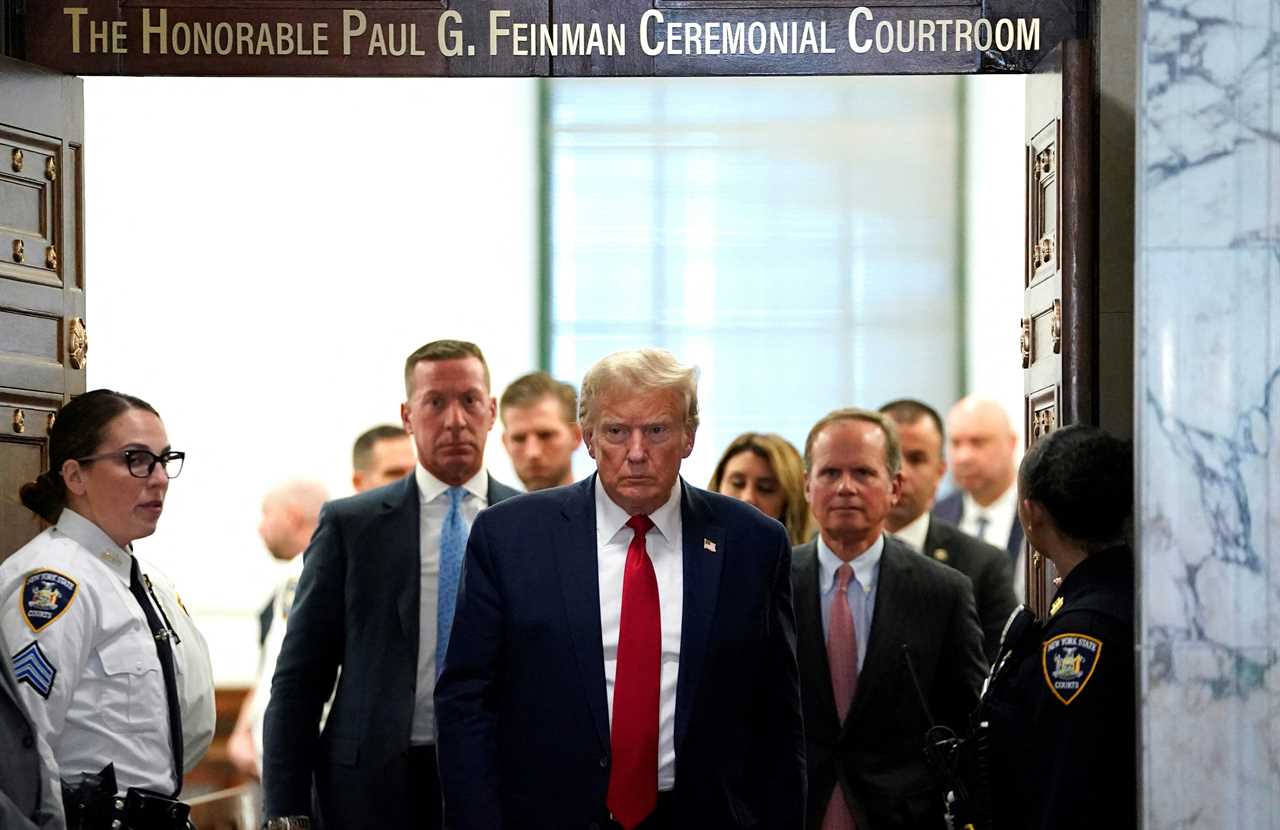
NEW YORK — To get from his last trial, which ended Thursday, to his next, beginning Tuesday, Donald Trump can simply walk down the street.
One case — his civil fraud trial — was in state court. The other — a defamation lawsuit from the writer E. Jean Carroll — is in federal court. But the two courthouses are next to each other in lower Manhattan, and Trump’s quick turnaround from one to the other will highlight the intense schedule of legal obligations he must endure over the next several months as he pursues the Republican nomination for president.
Both cases are civil lawsuits that have infuriated the former president. During closing arguments in the fraud case last week, he sat in the courtroom and berated the judge, who has already ruled that Trump committed business fraud and is now weighing whether to fine him and the Trump Organization hundreds of millions of dollars.
Carroll has drawn similar vitriol from Trump.
In 2019, the longtime advice columnist for Elle magazine publicly accused Trump of raping her in the dressing room of a luxury department store in the 1990s — an account that Trump denied in stark and derogatory terms.
Last year, Carroll won a sexual abuse and defamation case against him, and the jury ordered Trump to pay her $5 million.
Now she’s taking him to court again.
The trial starting Tuesday — which will begin with the selection of a jury and is expected to last around three days — concerns comments that Trump made about Carroll while he was in office. He said she was peddling a false rape accusation and suggested she was motivated by money.
“I’ve never met this person in my life,” he said at the time. “She is trying to sell a new book — that should indicate her motivation. It should be sold in the fiction section.”
Trump is not required to attend the trial personally, but he is expected to be in court on Tuesday before heading to New Hampshire for a campaign rally.
U.S. District Judge Lewis Kaplan, who is overseeing the case, has already ruled that, based on the outcome of last year’s trial, Trump’s comments as president were, indeed, defamatory, and that he is liable for them.
The only matter at the new trial, therefore, is how much money the jury believes Trump should pay in damages. Carroll is asking for $10 million in compensatory damages. (Any damages awarded in this trial would be on top of the $5 million verdict in the prior case. Trump has appealed that verdict.)
Because of the narrow focus of the trial, Kaplan has severely curtailed the scope of the evidence Trump can offer. The judge wrote in an opinion that “Mr. Trump is precluded from offering any testimony, evidence or argument suggesting or implying that he did not sexually assault Ms. Carroll, that she fabricated her account of the assault, or that she had any motive to do so.”
That means that although Trump has indicated that he may testify in his own defense, he will be unable to say in court what he has repeatedly claimed in public: that he didn’t rape Carroll and that she fabricated her accusations.
Over the weekend, Trump tore into Kaplan on social media, calling him “crazed” and saying “he is a bad person and an even worse judge.” Trump also criticized the judge for refusing to agree to Trump's request to postpone the trial so that Trump could attend the funeral of his mother-in-law in Florida on Thursday. (Kaplan noted that Trump isn’t required to attend the trial and said he would allow Trump to delay his testimony until Monday for the purpose of attending the funeral.)
If Trump does choose to testify in his own defense, Kaplan’s restrictions on what Trump can say will undoubtedly test Trump’s self-control on the witness stand. Throughout his civil fraud trial, the judge in that case, Justice Arthur Engoron, struggled mightily, and often with little success, to control what Trump said about the case, both in and out of court.
He imposed a gag order, fined Trump twice for violating that order, begrudgingly allowed Trump to deliver campaign-style rhetoric on the stand and, finally, attempted to impose a set of preconditions on Trump after he said he wanted to give a closing argument on his own behalf. Trump didn’t agree to them in advance and then refused to accept them on the spot in the courtroom, instead defying the judge and launching into a five-minute monologue.
The fraud trial, however, didn’t have a jury (because the verdict will be decided by the judge), and the presence of a jury in the Carroll trial will likely mean the judge in that case will maintain much tighter controls on what anyone, Trump included, says in the courtroom.
----------------------------------------
By: Erica Orden
Title: Trump already lost one case brought by E. Jean Carroll. This week he faces her in court again.
Sourced From: www.politico.com/news/2024/01/16/trump-e-jean-carroll-second-lawsuit-00135610
Published Date: Tue, 16 Jan 2024 05:00:00 EST
Did you miss our previous article...
https://consumernewsnetwork.com/politics-us/local-election-officials-are-on-edge-as-they-prepare-for-the-2024-elections






